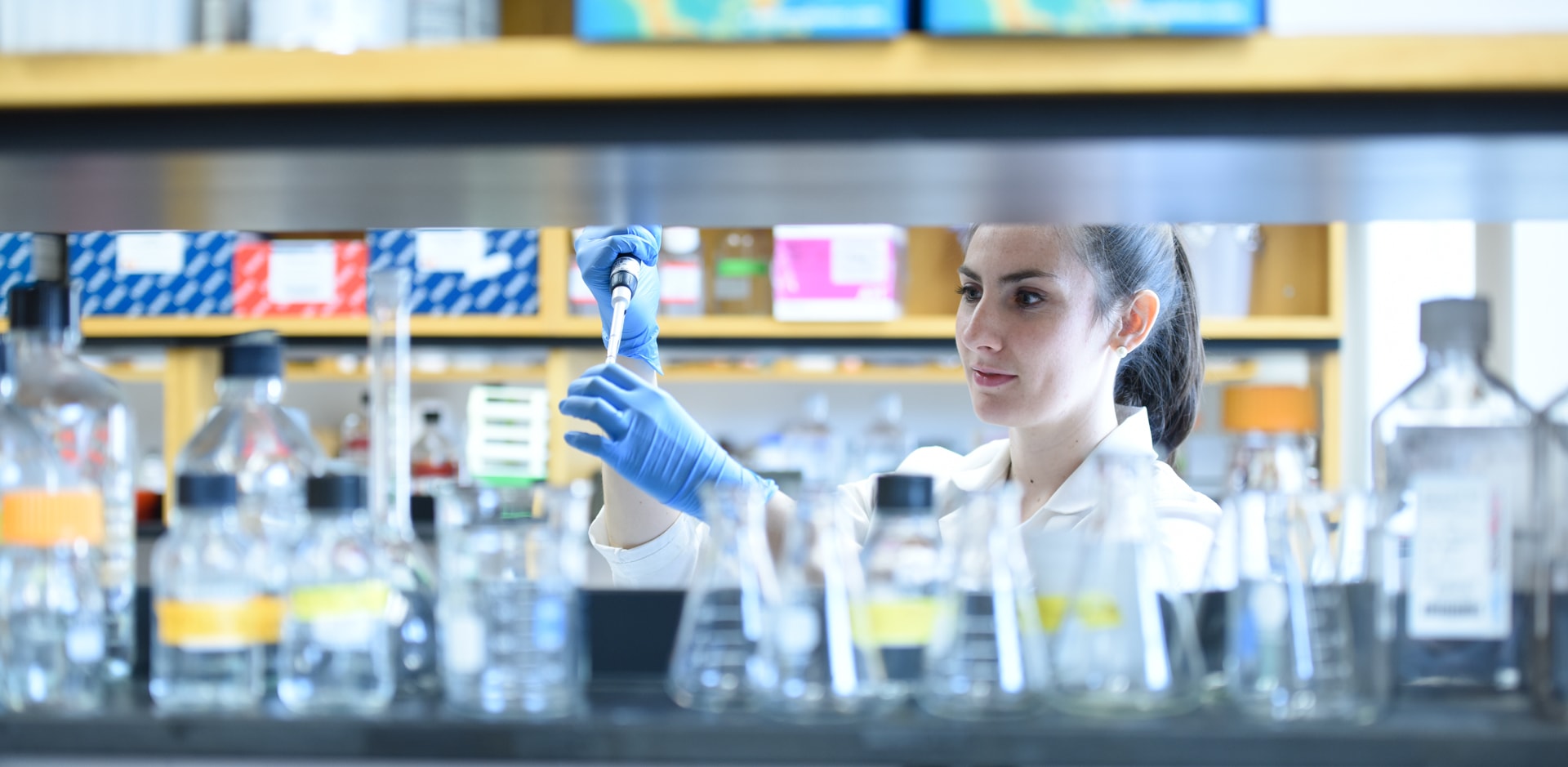
Research projects in the UAB Multiple Sclerosis Center range from laboratory studies of the processes underlying the disease to drug discovery and clinical trials of new exercise therapies.
Lab research
Collaborative high-risk/high-reward projects are highly valued at the MS Center, as they often offer the best path to new insights on ways to slow, halt or reverse MS.
Discoveries made in the lab can validate new targets for drugs and other therapies. The most promising projects benefit from the center's dedicated Research Acceleration Fund, which is used to develop novel therapeutic modalities and clinical studies.
Current projects fall into three broad categories:
- JAK/STAT Pathway abnormalities in neuroinflammation
- Molecular regulation of MS susceptibility genes
- CD4+ T cell development and inflammation
Learn more about lab research on MS at UAB
UAB MS Center Co-Director
Clinical research
Human studies in the MS Center are focused on how and why the disease begins, how it evolves over time, and patient outcomes.
Physician-scientists and patients at UAB have participated in clinical research to develop MS disease-modifying drugs since the pivotal study of interferon beta-1b in the late 1980s.
Clinical trials of new drugs are a regular part of care in the MS Center, as new drugs and therapeutic approaches continue to alter the treatment options for MS patients.
Learn more about clinical research on MS at UAB
Why UAB for MS research?
The UAB Multiple Sclerosis Center sees more than 3,000 patients per year and is the premier MS clinic in the state of Alabama and surrounding areas. As part of an elite group of centers nationwide designated by the National MS Society as a Comprehensive Center for MS Care, the UAB MS Center offers patients a specialized and multidisciplinary approach to care. The MS Center also has active recognition as an affiliate of the Consortium of Multiple Sclerosis Centers and the VA Centers for Excellence. It is located at one of the preeminent academic medical centers in the United States.
- UAB’s basic research community includes world-class immunologists and glial biologists. The UAB MS Center’s expertise in autoimmunity, combined with researchers from a broad range of other disciplines, make up a strong collaborative core highly conducive to discovery and progress.
- The MS Center’s Biorepository and Database Initiative is developing a sophisticated record of disease-specific clinical measures, imaging studies, biomarkers, patient-reported outcomes, and genetic information.
- Because the MS Center sees a high proportion of the MS patients in Alabama, it is in a unique position to conduct population-based studies to uncover new knowledge about everything from environmental factors related to MS to statistical analyses comparing the effectiveness of various drug treatments. One of the world’s leading statisticians focused on MS is on the faculty at UAB.
- Our location also puts us in a unique position to recruit patient groups important to include in clinical studies and trials. For example, although African-Americans have a lower incidence of MS, their MS tends to be much more severe. Drug effectiveness might not be the same for those with severe cases of MS; clinical trials at UAB can help address this.
- UAB’s pediatric MS center, the Center for Pediatric Onset Demyelinating Disorders, is one of only 12 Pediatric Centers of Excellence in the country designated by the National MS Society. UAB aims to develop new strategies for caring for children with MS and to better understand the development of MS in pediatric patients